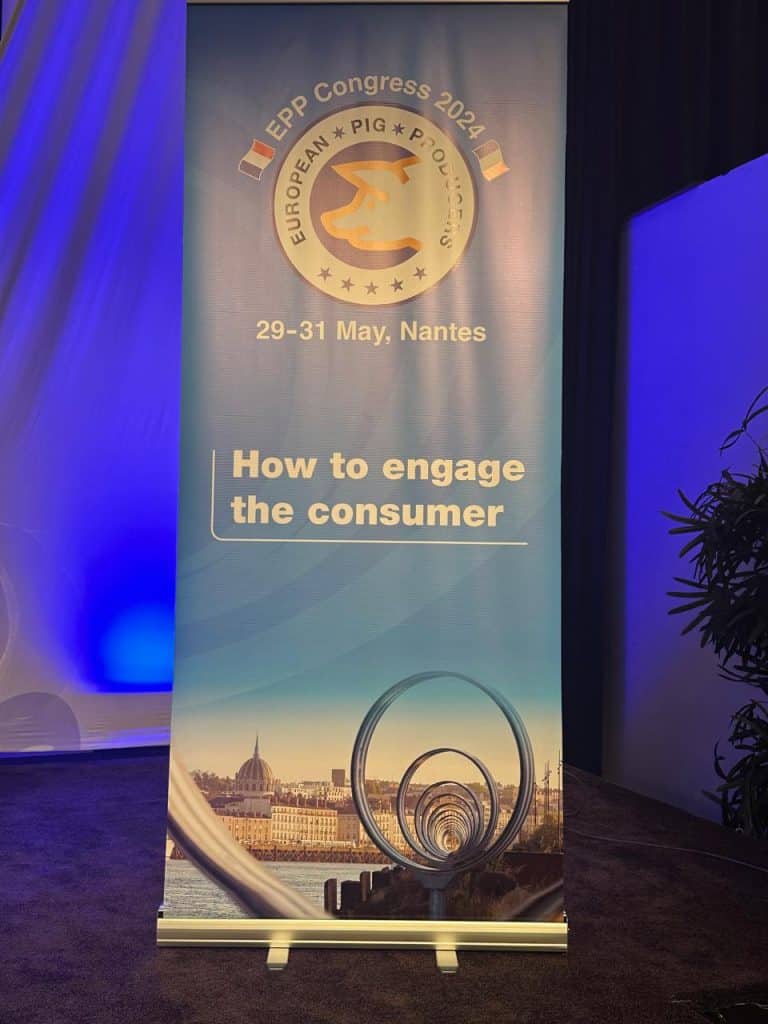During the last week of May, SAPPO chief executive officer Dr Peter Evans attended the European Pig Producers (EPP) congress in Nantes, France. Over 300 delegates from most of the European Union (EU) countries attended the congress, entitled: “How to engage the consumer”. Nantes is in Brittany where 56% of France’s pigs are found.
The European pig industry
France is the second most populous country in the EU and has the largest number of agricultural activities; it is the top producer of grains, eggs, and beef, second in milk production, and third for pork. Agriculture makes up 5% of French gross domestic product (GDP), which is lower than, for instance, Denmark (29%), Spain (18%), Germany (12%), and the Netherlands (10%).
Pork consumption in France is the highest of all meat commodities at 31,1 kg, with poultry being slightly lower at 27,9 kg. However, over the past 10 years, the per capita consumption of pork has decreased by 10% while poultry has increased by 26%, which is a worrying trend.
There is an increase in looking at niche products to answer consumer concerns, which include welfare systems and antibiotic-free production. More French pig farmers are contracting their supply of weaners and/or buyers of pigs. Integration is also becoming more popular. The French pig industry is experiencing more imports due to lower prices from trading partners and a reduction in exports. Despite this, France is 100% self-sufficient.
The importance of animal products in human nutrition
Prof. Phillipe Legrand (human biochemistry) gave an interesting perspective on why animal-derived products should be part of peoples’ diets. Contrary to popular belief, non-essential amino acids are not synthesised, unlike fatty acids from glucose, but require NH2 donors derived from protein. Additionally, meat contains approximately double the amount of protein compared to soya protein; therefore, to satisfy protein demand, more soya needs to be consumed.
He also highlighted other nutrients supplied by meat products; for example, vitamin B12, iron, vitamin D, vitamin A, iodine, zinc, omega 3, and calcium are very important, especially in younger people.
Other highlights from Nantes
There were talks around a retail–farmer collaboration programme and corporate social responsibility (CSR), which addressed welfare concerns, antibiotic reduction, and reducing environmental impact of pig farming. It is very apparent that the same concerns and issues we have in South Africa are present in Europe.
Biotechnology solutions are being identified and researched all with the objective of improving sustainability.
Cooperl, a French company that offers a holistic service to the pig industry from feed to slaughter and processing, are going a lot further in the sustainability area. Farms are measured against a set of four standards, namely: pesticide usage, animal welfare, biodiversity, and impact on climate change. The rating on a scale of A–E is then to be displayed on packaging. Of interest was that Cooperl collects dry (separated) manure from farms for further processing to natural fertilisers, and in so doing, they can claim to improve their sustainability kudos.
The congress was valuable in highlighting that it is possible to farm profitably and realise environmental, social, and governance (ESG) goals simultaneously.
The South African Pork Producers’ Organisation (SAPPO) coordinates industry interventions and collaboratively manages risks in the value chain to enable the sustainability and profitability of pork producers in South Africa.








